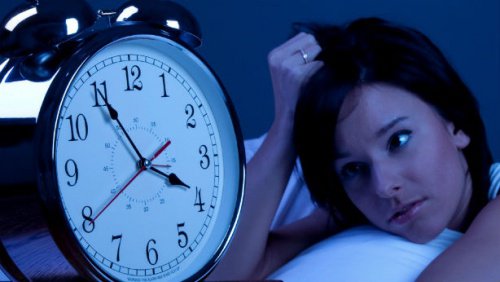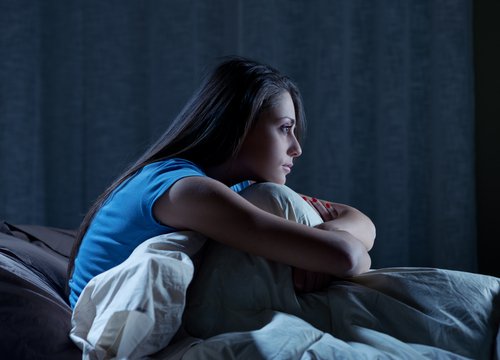A surprisingly common phenomenon nowadays is awakening at 3 o’clock at night or even later this hour. Although some people think that this phenomenon has mystical or supernatural causes, it is actually a problem related to sleep or anxiety disorders.

But the awakening at 3 o’clock is a phenomenon that needs to be explained in detail so that it can be understood and confronted. If you wake up frequently in the early hours of the day and you can not fall asleep again, you may eventually suffer more serious problems. For this reason, it’s important to know what you need to do to get some rest.
Symptoms associated with waking at 3 o’clock in the morning

Numerous magazines and websites have treated this phenomenon. What we need to keep in mind is that awakening at 3 o’clock is not at all “bizarre,” but simply a natural reaction of our brains when we experience a high level of stress. But as soon as this problem begins to affect our ability to rest, we must take action to remedy it.
Here are some symptoms often associated with waking at 3 o’clock:
- You get aroused by intense anxiety and anxiety.
- You have heart palpitations and feel a danger is watching you.
- It is impossible for you to fall asleep again, and this amplifies anxiety, negative thoughts and insomnia that you experience.
- If you can fall asleep again, you will not have a restful sleep and you will feel very tired in the morning.
- The phenomenon is repeated several times during the week.
The connection between anxiety and awakening at 3 o’clock
Why do I always wake up at 3 o’clock at night?
If during the week you happen to wake up in the early hours of the day repeatedly, the first thing you do is ask yourself whether you worry about or bother something in your life. Maybe you’re overworked or you’re facing an emotional problem.
All of the factors we have just listed can cause anxiety. But it often happens that we do not realize that we are affected by anxiety, and the reaction of our brain to this problem is sleep disturbance. We will start to fall asleep and we will wake up in the early hours of the day with the feeling that a danger lies ahead.
Let’s take a closer look at this phenomenon:
- Anxiety directly affects the central nervous system (CNS), causing small changes in the bio- and neurochemical systems involved in the sleep-wake cycle. All these changes will alter the sleep stages (REM and non-REM).
- Generally, when we are affected by anxiety, we have difficulty falling asleep. We’re probably just going to fall asleep at midnight, but our sleep will be fragmented and it’ll be harder for us to get into REM when sleep becomes deep and restful. Our brain will interpret the perceived anxiety as a danger that we have to get away with and so we wake up around 3 o’clock in the morning.
- The awakening at 3 o’clock is a natural response to the anxiety of the human body, the sleep disorder resulting from the alteration of neurotransmitters.
What can I do to fix this problem?

If you suffer from sleep disorders caused by anxiety, you will have to confront directly the sources of stress and causes of anxiety in order to have a restful sleep again.
- First, you have to accept and acknowledge that there is a problem. The awakening at 3 o’clock full of fear, feeling as if something terrible is watching you, is not at all normal. You have to try to find the cause of this problem: What bothers you? Why are you unhappy and why is it that you feel threatened?
- You will have to make small changes in your life, reorganize your priorities, and adopt new habits that will stimulate your brain and help you get rid of stress.
- Try to take a walk after dinner for at least half an hour. Walk, take a deep breath, try to look at things from a new perspective and relax.
- When you get home, take a relaxing bath before bedtime. Avoid unnecessary thoughts like “I have to rest tonight to be productive tomorrow at work.” Such thoughts will simply stress you more because you will see sleep as an obligation.
- Clear your mind and avoid disturbing thoughts.
- Make sure your bedroom is clean and well ventilated. According to many specialists, the ideal temperature for a restful sleep is 20 ° C. If the temperature in your bedroom exceeds 25 ° C, it will be difficult for you to fall asleep.
Click Here to learn how to Cure Snoring and Sleep Apnea

Cure Your Insomnia in 6 Simple Steps & Start Sleeping for 8 Hours Every Night – in Just 3 Days!

No Comments Yet